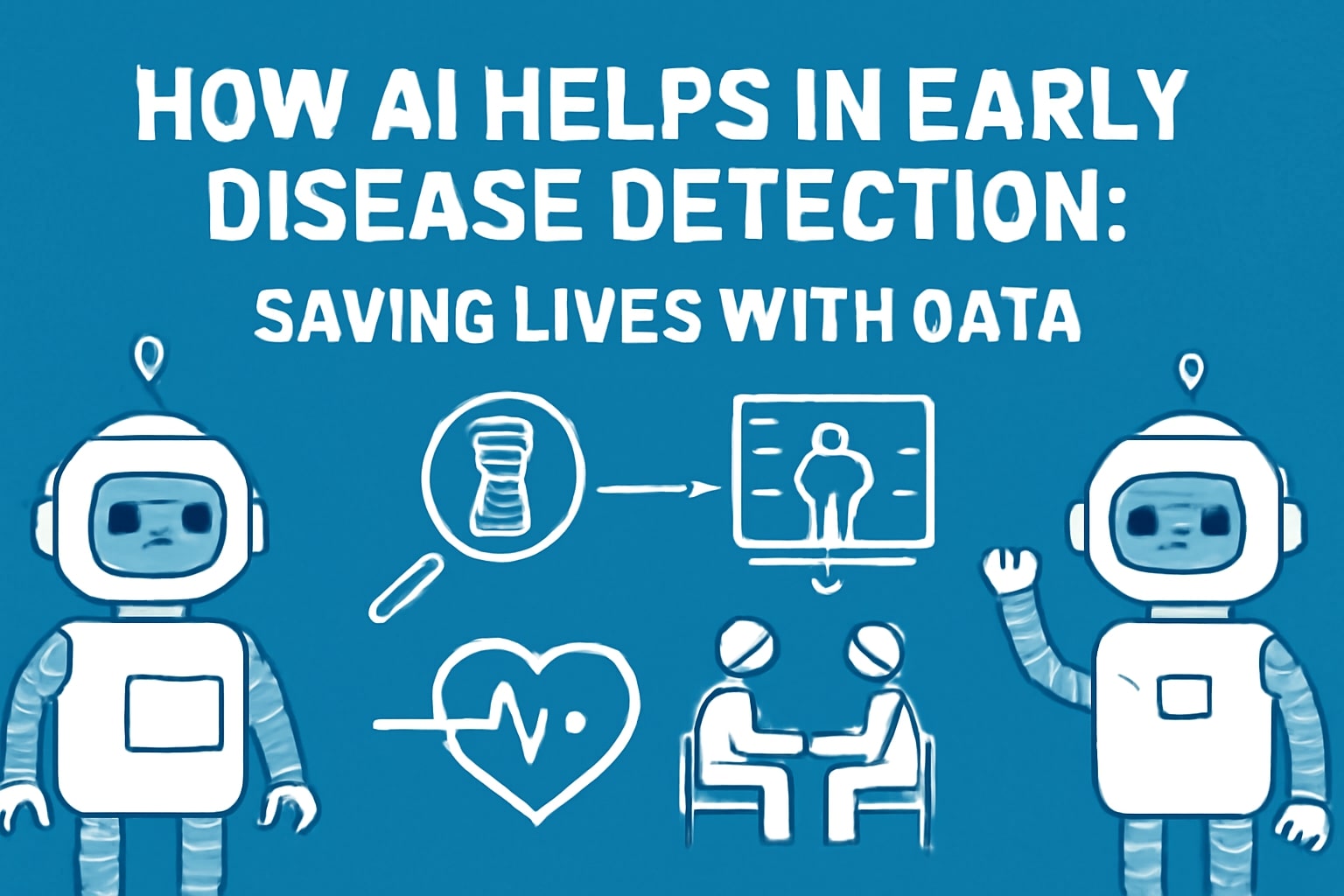In medicine, timing is critical. Detecting a disease at its earliest stage dramatically improves treatment success and survival rates. AI in early disease detection is emerging as a powerful ally, analyzing complex medical data to identify subtle signs of illness long before symptoms appear. This technology is transforming healthcare into a proactive, preventive system.
1. AI in Medical Imaging: A Sharper Eye
AI has made major strides in medical imaging, analyzing millions of X-rays, MRIs, and CT scans to detect anomalies with superhuman precision.
- Cancer Detection: AI models can identify early-stage tumors in mammograms, lung CT scans, and skin lesion images, highlighting suspicious areas for radiologists to review and reducing false negatives.
- Neurological Diseases: AI can analyze MRI scans to detect subtle brain changes that may indicate early onset Alzheimer’s or other dementias, enabling timely interventions.

Learn more about AI applications in medical imaging
2. Predictive Analytics from Electronic Health Records (EHRs)
AI can analyze a patient’s medical history—including lab results, doctor notes, and vital signs—to identify patterns predicting future risk.
- Example: Slightly elevated blood sugar, high blood pressure, and family history can signal high risk for Type 2 diabetes within five years.
- Sepsis Detection: Hospitals use AI to monitor real-time patient data, predicting sepsis hours before clinical symptoms appear.
Internal link suggestion: Read more about AI in hospital administration and patient management
3. Wearables and Continuous Monitoring
Consumer wearables (Apple Watch, Fitbit) and medical devices collect continuous health data, allowing AI to detect early disease signals.
- Atrial Fibrillation (AFib): Smartwatches can monitor heart rhythm and alert users to potential AFib before symptoms appear.
- Neurodegenerative Diseases: AI analyzes gait, sleep patterns, and typing speed to detect early signs of Parkinson’s disease.

4. Liquid Biopsies and Genomic Analysis
AI can analyze blood tests (“liquid biopsies”) to detect DNA fragments from cancer cells, potentially identifying cancer at its earliest stage with a simple blood draw.
Outbound link: National Institutes of Health – Liquid Biopsy Research
The Impact: From Reactive to Proactive Medicine
- Improved Survival Rates: Early detection correlates with better outcomes in cancer and chronic diseases.
- Reduced Healthcare Costs: Treating disease early is less expensive than managing advanced conditions.
- Personalized Risk Assessment: AI enables individualized prevention strategies beyond generic health advice.
Challenges and the Road Ahead
- Bias and Diversity: Algorithms must be trained on diverse datasets to avoid inaccuracies.
- Clinical Workflow Integration: Tools must seamlessly fit into healthcare routines.
- Patient Communication: Early warnings must be actionable without causing undue anxiety.
Despite these hurdles, AI in early disease detection holds tremendous potential. By identifying illnesses at their earliest stage, it can save lives, reduce healthcare costs, and personalize prevention strategies for every patient.
